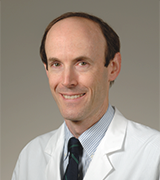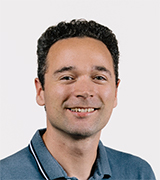Keynote speakers
Prof. Ronald Summers
Senior Investigator and Staff Radiologist at the NIH
 Ronald M. Summers received the B.A. degree in physics and the M.D. and Ph.D. degrees in Medicine/Anatomy & Cell Biology from the University of Pennsylvania. In 1994, he joined the Diagnostic Radiology Department at the NIH Clinical Center in Bethesda, MD where he is now a tenured Senior Investigator and Staff Radiologist. In 2013, he was named a Fellow of the Society of Abdominal Radiologists. He is currently Chief of the Clinical Image Processing Service and directs the Imaging Biomarkers and Computer-Aided Diagnosis (CAD) Laboratory. In 2000, he received the Presidential Early Career Award for Scientists and Engineers, presented by Dr. Neal Lane, President Clinton’s science advisor. In 2012, he received the NIH Director’s Award, presented by NIH Director Dr. Francis Collins. His research interests include deep learning, virtual colonoscopy, CAD and development of large radiologic image databases. His clinical areas of specialty are thoracic and abdominal radiology and body cross-sectional imaging. He is a member of the editorial boards of the Journal of Medical Imaging and Academic Radiology and a past member of the editorial board of Radiology. He is a program committee member of the Computer-aided Diagnosis section of the annual SPIE Medical Imaging conference and will be co-chair of the entire conference in 2018 and 2019.
Ronald M. Summers received the B.A. degree in physics and the M.D. and Ph.D. degrees in Medicine/Anatomy & Cell Biology from the University of Pennsylvania. In 1994, he joined the Diagnostic Radiology Department at the NIH Clinical Center in Bethesda, MD where he is now a tenured Senior Investigator and Staff Radiologist. In 2013, he was named a Fellow of the Society of Abdominal Radiologists. He is currently Chief of the Clinical Image Processing Service and directs the Imaging Biomarkers and Computer-Aided Diagnosis (CAD) Laboratory. In 2000, he received the Presidential Early Career Award for Scientists and Engineers, presented by Dr. Neal Lane, President Clinton’s science advisor. In 2012, he received the NIH Director’s Award, presented by NIH Director Dr. Francis Collins. His research interests include deep learning, virtual colonoscopy, CAD and development of large radiologic image databases. His clinical areas of specialty are thoracic and abdominal radiology and body cross-sectional imaging. He is a member of the editorial boards of the Journal of Medical Imaging and Academic Radiology and a past member of the editorial board of Radiology. He is a program committee member of the Computer-aided Diagnosis section of the annual SPIE Medical Imaging conference and will be co-chair of the entire conference in 2018 and 2019.
Dr. Graham Taylor
Associate Professor at University of Guelph
 Graham Taylor is an Associate Professor of Engineering at the University of Guelph, a CIFAR Azrieli Global Scholar, an Academic Director of NextAI, and a member at the Vector Institute for Artificial Intelligence. His research aims to discover new algorithms and architectures for deep learning: the automatic construction of hierarchical algorithms from high-dimensional, unstructured data. He is especially interested in time series, having applied his work to better understand human and animal behaviour, environmental data (climate or agricultural), audio (music or speech) and medical informatics. His work also intersects high performance computing, investigating better ways to leverage hardware accelerators to cope with the challenges of large-scale machine learning. He co-organizes the annual CIFAR Deep Learning Summer School, and has trained more than 50 students and staff members on AI-related projects.
Graham Taylor is an Associate Professor of Engineering at the University of Guelph, a CIFAR Azrieli Global Scholar, an Academic Director of NextAI, and a member at the Vector Institute for Artificial Intelligence. His research aims to discover new algorithms and architectures for deep learning: the automatic construction of hierarchical algorithms from high-dimensional, unstructured data. He is especially interested in time series, having applied his work to better understand human and animal behaviour, environmental data (climate or agricultural), audio (music or speech) and medical informatics. His work also intersects high performance computing, investigating better ways to leverage hardware accelerators to cope with the challenges of large-scale machine learning. He co-organizes the annual CIFAR Deep Learning Summer School, and has trained more than 50 students and staff members on AI-related projects.
Dr. Adriana Romero
Research Scientist at Facebook AI Research
 Adriana Romero is a research scientist at Facebook AI Research and an adjunct professor at McGill University. Previously, she was a post-doctoral researcher at Montreal Institute for Learning algorithms, advised by Prof. Yoshua Bengio. Her research revolves around deep learning techniques to tackle biomedical data analysis challenges, addressing impactful problems for society by paving the road towards enabling widespread usage of personalized medicine. Adriana received her Ph.D. from the University of Barcelona in 2015 with a thesis on assisting the training of deep neural networks with applications to computer vision, advised by Dr. Carlo Gatta. Her PhD included contributions in the fields of representation learning and model compression, with applications to image classification, image segmentation and remote sensing.
Adriana Romero is a research scientist at Facebook AI Research and an adjunct professor at McGill University. Previously, she was a post-doctoral researcher at Montreal Institute for Learning algorithms, advised by Prof. Yoshua Bengio. Her research revolves around deep learning techniques to tackle biomedical data analysis challenges, addressing impactful problems for society by paving the road towards enabling widespread usage of personalized medicine. Adriana received her Ph.D. from the University of Barcelona in 2015 with a thesis on assisting the training of deep neural networks with applications to computer vision, advised by Dr. Carlo Gatta. Her PhD included contributions in the fields of representation learning and model compression, with applications to image classification, image segmentation and remote sensing.
Dr. Tim Salimans
Research Scientist at OpenAI
Scientific Advisor and Co-Founder at Aidence
 Tim Salimans is a Machine Learning research scientist working on generative modeling, semi-supervised and unsupervised deep learning, and reinforcement learning. He received his PhD from Erasmus University Rotterdam. He is most well known for his work on GANs and VAEs. He received the 2014 Lindley prize for his work in variational inference using reparameterization and he is the winner of multiple Kaggle competitions. At MIDL he will be speaking about his work with Aidence, the Amsterdam startup that's building a Deep Learning software platform to help radiologists improve their diagnostic accuracy and reading efficiency.
Tim Salimans is a Machine Learning research scientist working on generative modeling, semi-supervised and unsupervised deep learning, and reinforcement learning. He received his PhD from Erasmus University Rotterdam. He is most well known for his work on GANs and VAEs. He received the 2014 Lindley prize for his work in variational inference using reparameterization and he is the winner of multiple Kaggle competitions. At MIDL he will be speaking about his work with Aidence, the Amsterdam startup that's building a Deep Learning software platform to help radiologists improve their diagnostic accuracy and reading efficiency.